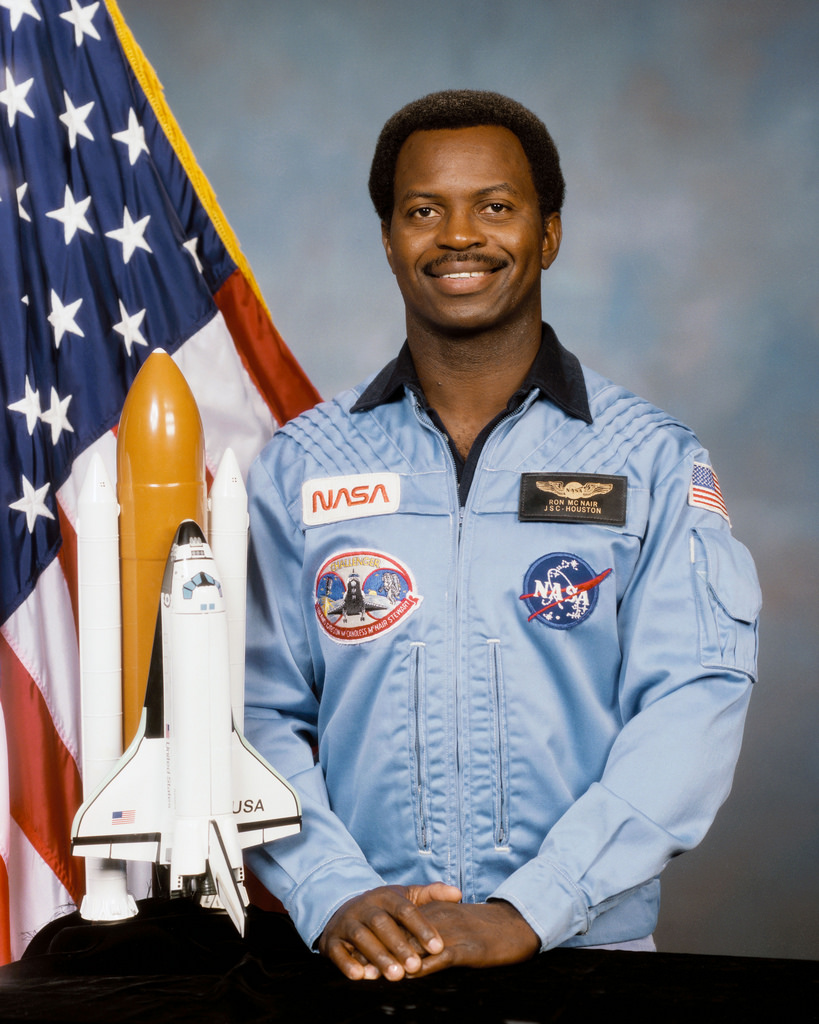Support Page Content
Dr. Ronald E. McNair's Biography

About McNair
Ronald Ervin McNair, the second African-American to fly in space, was born on October 12, 1950 in Lake City, South Carolina where he graduated valedictorian from Carver High School in 1967. In 1971, he received a bachelor's degree in Physics, magna cum laude, from North Carolina A&T University (Greensboro). In 1976, he received a Ph.D. in Physics from Massachusetts Institute of Technology. He received his Ph.D. ten years after his high school graduation, thus attaining the goal which he had set for himself while still in high school.
Dr. McNair was nationally recognized for his work in the field of Laser Physics, selected as one of thirty-five applicants from a pool of ten thousand for the astronaut program in 1978. On his first space flight in 1984, Dr. McNair successfully conducted several experiments, including manipulating a remote arm that supported payloads floating in space. He logged over 191 hours in space on this first flight. He was the recipient of three honorary doctorates and a score of fellowships and commendations. Dr. McNair devoted time to his family and to extracurricular activities. He was happily married and the proud father of two children, Reginald Erwin and Joy Cheray. He was also a sixth degree black belt in karate who instructed students in his community in the sport. In addition, Dr. McNair was a jazz saxophonist of note and performed in several bands.
Dr. Ronald Ervin McNair and his fellow astronauts perished January 28, 1986 when the space shuttle Challenger exploded on its way into outer space. In addition to the many honors which he has been awarded, the US Congress has established the McNair Scholars program in his name. This program is for first generation and income eligible students pursuing graduate education . His academic and subsequent career successes, dimmed only by his untimely death, serve as a beacon to the current generation of college students who, for many reasons, may feel that graduate education in general and the doctoral degree in particular are inaccessible. His spirit lives on in his oft cited words, "Before you can make a dream come true, you must first have one."